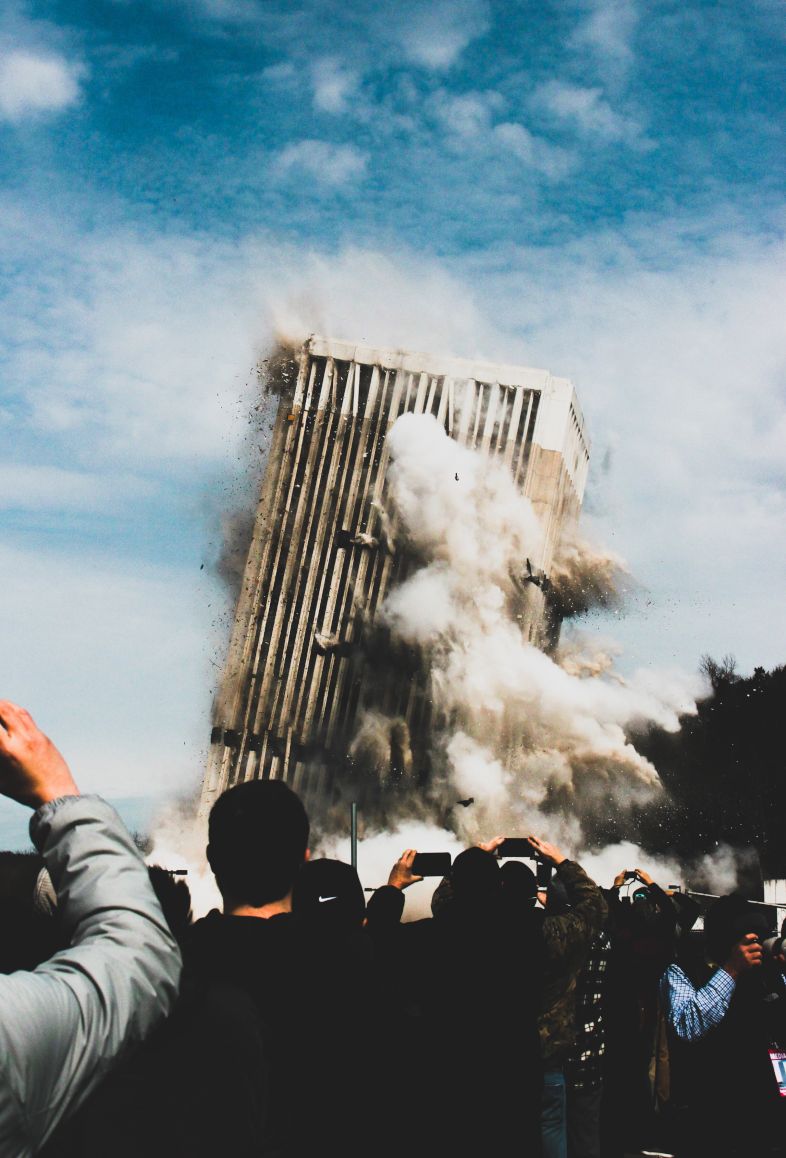Editor’s Note: This is an excerpt from the book Endgame Vol. 1 by Derrick Jensen. The seventh premise of this book is: “The longer we wait for civilization to crash – or before we ourselves bring it down – the messier will be the crash, and the worse things will be for those humans and nonhumans who live during it, and for those who come after.”
By Derrick Jensen / Endgame, Volume 1: The Problem of Civilization (Seven Stories Press, 2006)
Had somebody snuffed civilization in its multiple cradles, the Middle East would probably still be forested, as would Greece, Italy, and North Africa. Lions would probably still patrol southern Europe. The peoples of the region would quite possibly still live in traditional communal ways, and thus would be capable of feeding themselves in a still-fecund landscape.
Fast forward a few hundred years and we can say the same in Europe. Somehow stop the Greeks and Romans, and the indigenous people of Gaul, Spain, Germany probably still survive. Wolves might howl in England. Great auks might nest in France, providing year-round food for the humans who live there.
Salmon might run in more than token numbers up the Seine. The Rhine would be almost undoubtedly clean. The continent would be forested. Many of the cultures would be matrifocal. Many would be peaceful.
Had someone brought down civilization before 1492, the Arawaks would probably still live peacefully in the Caribbean. Indians would live in ancient forests all along the Eastern seaboard, along with bison, marten, fisher. North, Central, and South America would be ecologically and culturally intact. The people would probably have, as always, plenty to eat.
Had someone brought down civilization before the slave trade took hold, 100 million Africans would not have been sacrificed on that particular altar of economic production. Native cultures might still live untraumatized on their own land all across that continent. There probably would be, as there always was, plenty to eat.
If someone had brought down civilization one hundred and fifty years ago, those who came after probably could still eat passenger pigeons and Eskimo curlews. They could surely eat bison and pronghorn antelope. They could undoubtedly eat salmon, cod, lobster. The people who came after would not have to worry about dioxin, radiation poisoning, organochloride carcinogens, or the extreme weather and ecological flux that characterize global warming. They would not have to worry about escaped genetically engineered plants and animals. There probably would have been, as almost always, plenty to eat.
If civilization lasts another one or two hundred years, will the people then say of us, “Why did they not take it down?” Will they be as furious with us as I am with those who came before and stood by? I could very well hear those people who come after saying, “If they had taken it down, we would still have earthworms to feed the soil. We would have redwoods, and we would have oaks in California. We would still have frogs. We would still have other amphibians. I am starving because there are no salmon in the river, and you allowed the salmon to be killed so rich people could have cheap electricity for aluminum smelters. God damn you. God damn you all.”
I know someone whose brother demolishes buildings. The trick, he says, is to position the charges precisely so the building collapses in place, and doesn’t take out the surroundings. It seems to me that this is what we must do: position the charges so that civilization collapses in on itself, and takes out as little life as possible on its way down.
Part of the task of the rest of this exploration is to discover what form those charges will take, and where to put them.
Derrick Jensen (2006): Endgame Vol. 1 The Problem of Civilization, p 92


The demise of the Indians of the Eastern U.S,, of course, was due largely to their forced relocation to the West — the infamous “Trail of Tears,” ordered by our heroic 7th president, Andrew Jackson.
It isn’t as well known that Adolph Hitler wrote an unpublished sequel to “Mein Kampf,” in which he cited Jackson and the genocide of Native Americans as his inspiration for the “final solution” to the “Jewish problem.” Expel as many undesirables as you can, and systematically exterminate the rest. Then round up the ones you expelled, and exterminate them, too.
That thinking was still a source of humor during the Vietnam War, with the running joke among U.S. servicemen on how to achieve victory. “Put all the friendlies on ships. Bomb the country flat. Then sink the ships.”
The next time you pull a $20 bill out of your wallet, think about the fact that the man whose portrait adorns it is being celebrated as a war criminal and mass murderer, and as the man who inspired Hitler.
This is “American exceptionalism.” This is our legacy as a nation, and the foundation on which “the greatest country in history” was built. This is the triumph of civilization.